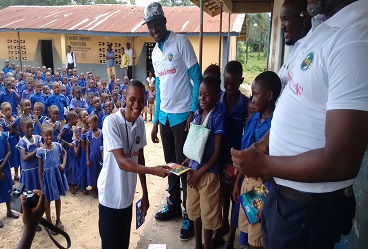Education for Poor Children
Modern 80% of the populations in Sierra Leone are living with extreme poverty
Education for poor children is a vital and compassionate initiative focused on providing educational opportunities to underserved and economically disadvantaged youngsters. These programs aim to break the cycle of poverty and empower children to build a better future for themselves and their communities.
Key aspects of education for poor children include:
- Access to Quality Education: Ensuring that all children, regardless of their socioeconomic background, have access to quality education. This includes not only basic literacy and numeracy but also skills that prepare them for a productive and fulfilling life.
- Financial Assistance: Providing financial support to cover the costs of school fees, uniforms, textbooks, and other educational necessities that impoverished families may struggle to afford.
- Nutrition and Health Services: Addressing the holistic needs of these children by incorporating nutrition and health services into education programs, as proper nourishment and healthcare are essential for effective learning.
- Community Involvement: Engaging with local communities to create a supportive and encouraging environment for these children, involving parents, caregivers, and community leaders in the educational process.
- Mentoring and Support: Offering mentorship and support to help students overcome challenges and stay motivated to pursue their education.
- Life Skills: Teaching practical life skills that can empower children to improve their socioeconomic status and contribute to the well-being of their families and communities.
Education for poor children is not just a matter of charity; it’s an investment in the future. By breaking down the barriers that prevent underprivileged children from accessing education, society can unlock their potential, reduce poverty, and foster a more equitable and prosperous future for all. These programs play a crucial role in ensuring that no child is left behind and that educational opportunities are extended to the most vulnerable members of our society.



